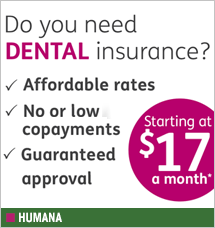
Dear Jonathan: My father, who was a widower, passed away last month. I am the administrator of his estate and after some digging have found three life insurance policies with death benefits totaling almost $500,000. From what I can tell, my mother was the named beneficiary on all of the policies, but she died five years ago. Since she is no longer alive, who will receive those proceeds?
Jonathan Says: It depends. Do you know whether a contingent beneficiary was named on any of the policies? If your father named a contingent beneficiary, then the named contingent beneficiary would receive those proceeds. Also, it is possible that your father may have changed the beneficiary designations on those policies after your mother passed away and if he did, then the death benefits would pass to whoever is named as the primary beneficiary if living, or if not, then to the contingent beneficiary if that person is still alive.
You should contact your father’s insurance agent, if he had one, or if not, then the insurance companies which issued the policies to determine who is named as the primary and contingent beneficiaries of those policies. If, upon checking, it is determined that your mother was named as the primary beneficiary and your father did not change the beneficiary designation after your mother passed away and there isn’t a living contingent beneficiary to receive those death benefits, then the death benefits of each policy will need to be probated in your father’s estate.
In your question, you indicated that you are the administrator of your father’s estate, which I take to mean that you have already opened a probate estate on his behalf. If so, you can apply to the insurance companies to have those proceeds made payable to his estate. If, on the other hand, there is no probate estate opened as of yet, then you will need to open a probate estate for the purpose of receiving those death benefits.
If the death benefits of those life insurance policies need to be paid to your father’s probate estate because there isn’t a living beneficiary named to receive those proceeds, then to whom those proceeds will be distributed upon the completion of probate will depend upon whether your father left a last will and testament or not. If he, in fact, left a last will and testament, then upon the completion of probate, the beneficiaries of those death benefits, along with any other assets being probated, will pass to the beneficiaries named in your father’s will pursuant to the terms of that will. If, on the other hand, he did not leave a will, then he will be deemed to have died intestate, which means that those death benefits and any other probatable assets will pass to his heirs pursuant to the laws of the state in which he lived at the time of his death, which most likely means it will go to his children in equal shares.
If you haven’t done so already, I recommend that you contact an attorney who specializes in decedents estates who can help direct you as to the steps you need to take to obtain and distribute the death benefits of those life insurance policies.
Good luck.
Dear Jonathan: I don’t have much in the way of assets, but I do want what I have to go to my only child, my daughter, upon my death without going through probate. I know all about trusts and the advantages of setting up a trust, but that is not the direction I want to go in because I don’t think the assets I have justify the cost of setting up a trust. All I have are a couple of bank accounts and my brokerage account with Merrill Lynch. I have divested myself of all other assets, including my home and my car. Any suggestions?
Jonathan Says: You should be able to register your bank and brokerage accounts in beneficiary form. This is accomplished pursuant to a transfer on death (“TOD”) or pay on death (“POD”) designation. In doing so, you can designate your daughter as the beneficiary of your bank and brokerage accounts upon your death meaning you would retain ownership while you are alive, but upon your death, the ownership of those accounts would automatically pass to your daughter without having to go through probate. You should contact your bank and Merrill Lynch about setting up those TOD accounts.
Good luck.
Jonathan J. David is a shareholder in the law firm of Foster, Swift, Collins & Smith, PC, 1700 East Beltline, N.E., Grand Rapids, Michigan 49525.



























































